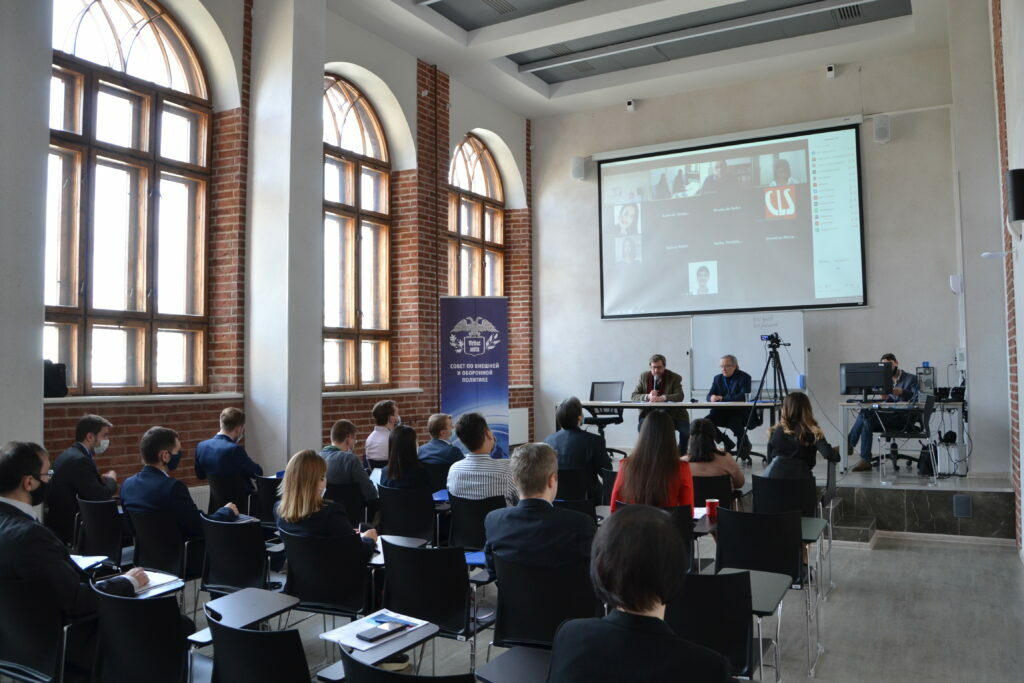The Centre for Liberal Strategies (Sofia) in cooperation with the Council on Foreign and Defense Policy (Moscow) and the Higher School of Economics (Moscow) is organising an international conference, Managing International Crisis Amid Global Uncertainty in Moscow on 27-29 April 2021.
The conference brought together a group of young and curious European politicians, experts, and analysts who are not specialists in Russia in order to critically introduce them to the Russian context, introduce them to active politicians, problematize the official point of view, and meet their colleagues in Russia's administration, academy, and NGO sectors.
Due to travel restrictions, participants from the EU and Asia had to be online. The three days of the conference included:
A one-day seminar with Russian experts on the following topics:
Russia's Foreign Policy 30 Years after the USSR with the participation of Timofei Bordachev, Research Director of the Center for European and International Studies, Higher School of Economics and Ivan Safranchuk, Research Fellow at the Institute for International Studies, MGIMO;
The conference brought together a group of young and curious European politicians, experts, and analysts who are not specialists in Russia in order to critically introduce them to the Russian context, introduce them to active politicians, problematize the official point of view, and meet their colleagues in Russia's administration, academy, and NGO sectors.
Due to travel restrictions, participants from the EU and Asia had to be online. The three days of the conference included:
A one-day seminar with Russian experts on the following topics:
Russia's Foreign Policy 30 Years after the USSR with the participation of Timofei Bordachev, Research Director of the Center for European and International Studies, Higher School of Economics and Ivan Safranchuk, Research Fellow at the Institute for International Studies, MGIMO;
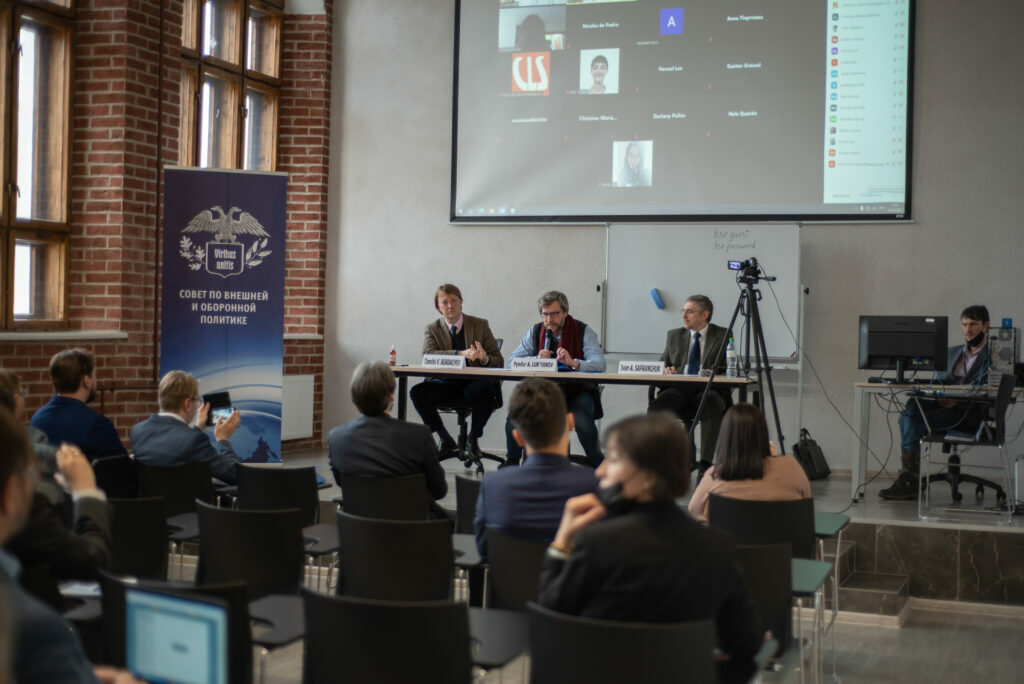
Socio-economic policy after the pandemic with Andrey Klepach, Chief Economist, Vnesheconombank (VEB.RF) and Oksana Sinyavskaya, Deputy Director, Institute for Social Policy, Higher School of Economics;

Russian politics: after the amendments, before the elections - Mikhail Vinogradov, president of the Petersburg Politics Foundation.
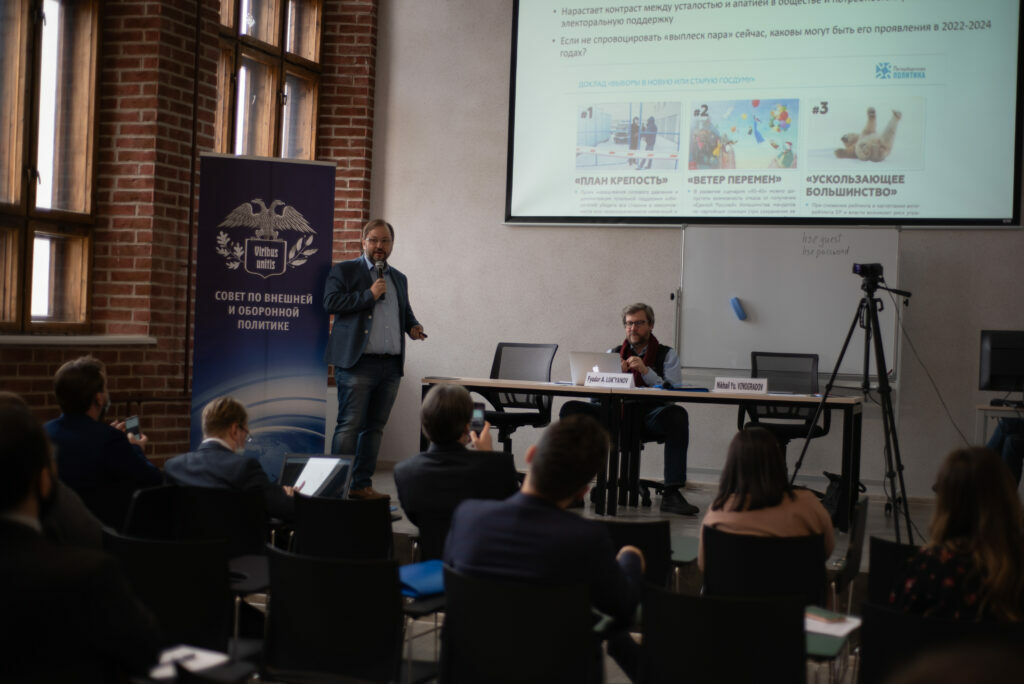
Each of the sessions ended with an active discussion
Political training game "International Crisis Management: Private Initiative".
Political training game "International Crisis Management: Private Initiative".
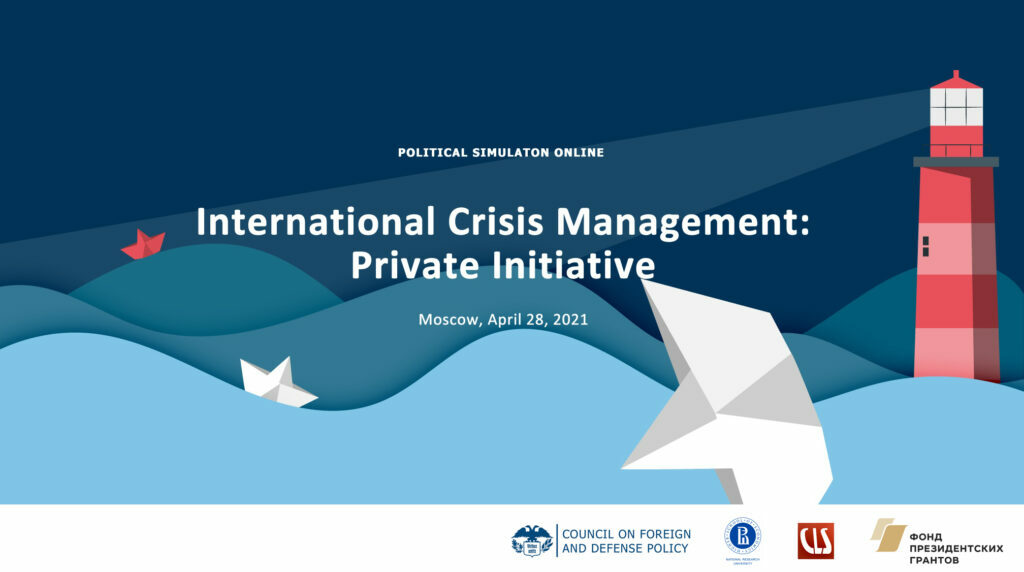
At the heart of the scenario of the training game was the task of seeking a solution to an international crisis through non-governmental (private) organisations in the face of growing international tensions and acute competition.
Participants had to assess the possibilities for effective interaction between different parties to resolve a contingent crisis situation on a regional scale threatening to escalate into a humanitarian catastrophe.
Participants were offered an anti-crisis "roadmap" developed by an ambitious cross-border NGO to evaluate and further develop, and were divided into four teams:
NGOS;
Russian interagency expert group;
World Bank;
Asian Shangri-La Forum.
The game was played in two phases, each adding new elements to the game scenario. After each stage, the teams' positions and proposals to solve the crisis were presented.
Participants had to assess the possibilities for effective interaction between different parties to resolve a contingent crisis situation on a regional scale threatening to escalate into a humanitarian catastrophe.
Participants were offered an anti-crisis "roadmap" developed by an ambitious cross-border NGO to evaluate and further develop, and were divided into four teams:
NGOS;
Russian interagency expert group;
World Bank;
Asian Shangri-La Forum.
The game was played in two phases, each adding new elements to the game scenario. After each stage, the teams' positions and proposals to solve the crisis were presented.
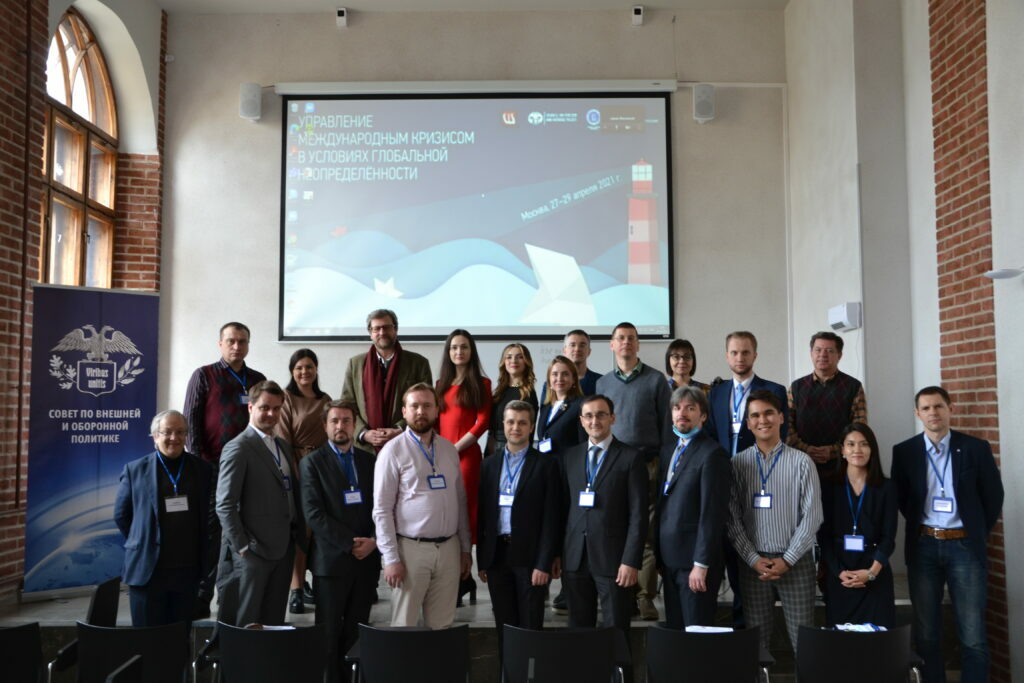
Informal online meetings with the participation of
Sergey Kislyak, First Deputy Chairman, Committee on International Affairs, Council of Federations of the Russian Federation;
Alexei Drobinin, Acting Director, Department of Foreign Policy Planning, Ministry of Foreign Affairs of the Russian Federation;
Vitaly Naumkin, Scientific Director, Institute of Oriental Studies, Russian Academy of Sciences; Academician RA.
Closing discussion in English
Sergey Kislyak, First Deputy Chairman, Committee on International Affairs, Council of Federations of the Russian Federation;
Alexei Drobinin, Acting Director, Department of Foreign Policy Planning, Ministry of Foreign Affairs of the Russian Federation;
Vitaly Naumkin, Scientific Director, Institute of Oriental Studies, Russian Academy of Sciences; Academician RA.
Closing discussion in English
